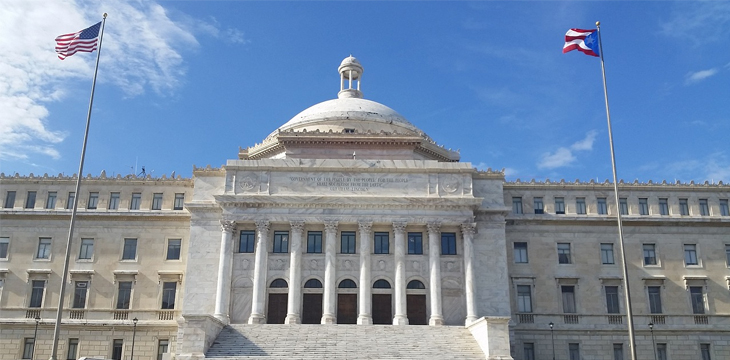|
Getting your Trinity Audio player ready...
|
Puerto Rico was once seen as a perfect location for digital currency startups. It had considerable tax incentives in place that benefited investors and entrepreneurs, which led to an increase in the development of business solutions in the U.S.-controlled territory. However, either by design or due to economic shortcomings caused by the coronavirus and other disasters, Puerto Rico needs to find new sources of revenue. As a result, a new law has been approved that will change the structure of the digital currency tax incentive programs in place.
Puerto Rico Governor Wanda Vazquez approved a new law last week, Law 40-2020, that alters the way tax incentives are provided to new residents. Spanish media outlet El Nuevo Día (The New Day) points out that the previous annual fee of $300 for those who moved to the island and applied for the incentive has been substantially increased. It has now jumped up to $5,000, and is expected to generate an additional $11.9 million for the government. In addition, there is also a new tax contribution reduction equal to 3% for anyone who earns $100,000 or less.
In correspondence with Decrypt, Puerto Rican tax consultant Giovanni Méndez, representing tax consulting firm Geo Tax, says, “The increment in maintenance costs for the decrees raises the bar for those who take part and for potential investors looking to relocate to the island for the tax benefits. The higher fee assumes that all of the participants are millionaires who hold fortunes with immediate liquidity. Those of us in the community know that this is not the case for a large part of investors and entrepreneurs that have relocated to the island.”
Now, for anyone wishing to move to the island, the upfront expenses are much higher, somewhat negating the existing tax incentives. There is a $750 filing fee, a $5,000 “special fund fee” if the filing application is approved, a $10,000 obligatory annual contribution (with the possibility of having the fee made in two payments) and the new $5,000 fee.
The structure will be detrimental to entities in the blockchain and digital currency spaces, and Méndez adds, “Regarding investors in the cryptocurrency market, the increase in costs affects whether some will remain on the island due to the volatility of the market and changes in value. The new Incentives Code brought sections that incorporate benefits to the crypto and blockchain markets which is something positive, but it clearly contrasts with this last legislation.”
The changes could force many who have decided to call the territory home to pack up and look for better, cheaper alternatives. Puerto Rico has been slammed by a number of major storms in recent years that have almost decimated its infrastructure, and the U.S. has been indifferent in providing a considerable amount of relief. The weakened foundation and the new fees might be enough to thwart Puerto Rico’s plans of being a major digital currency hub.

 02-28-2026
02-28-2026 




